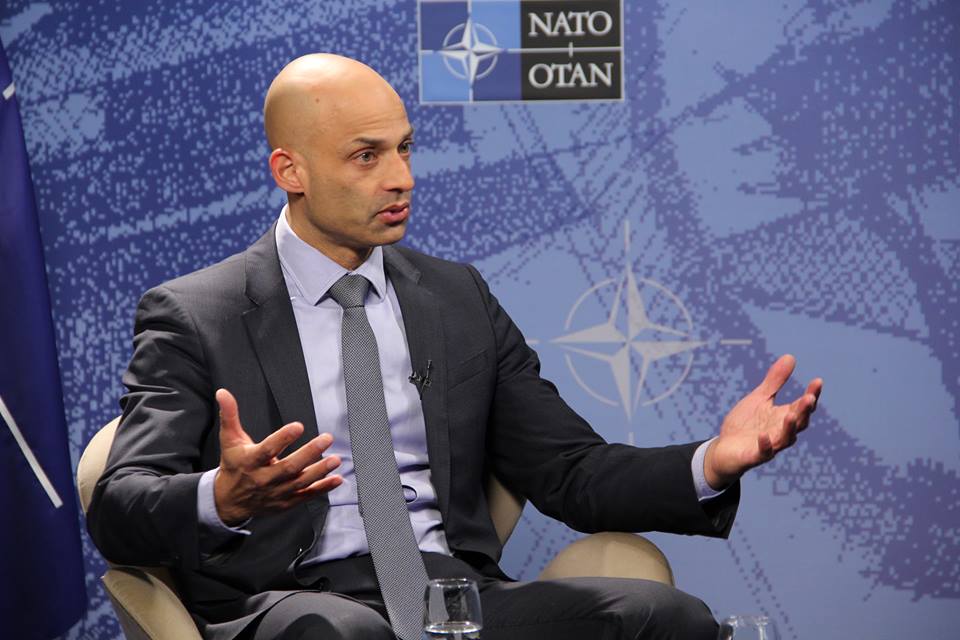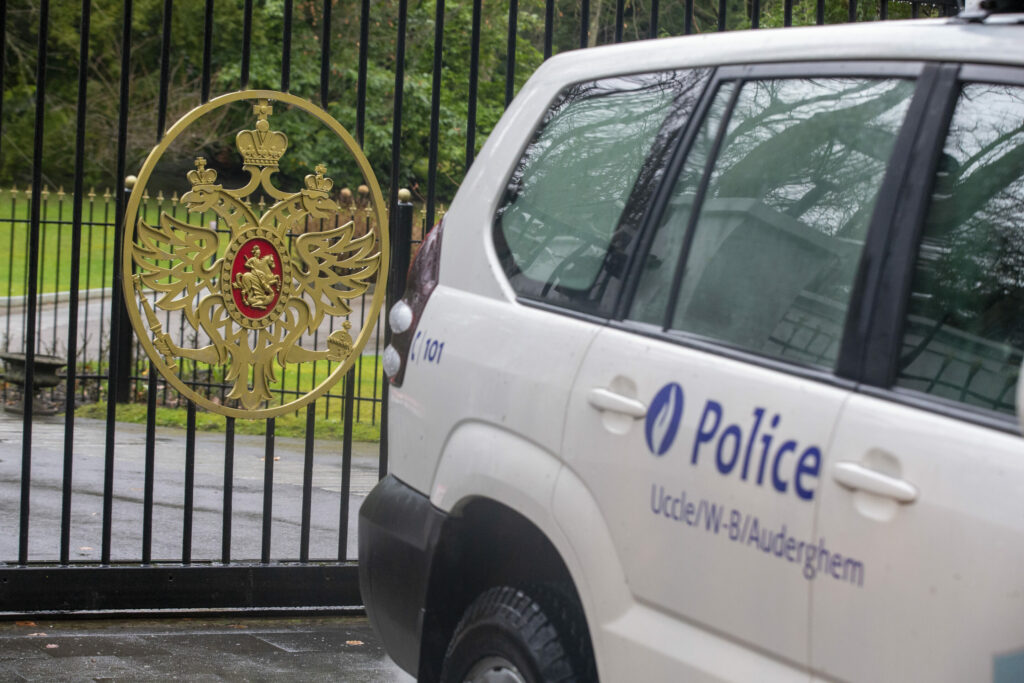Despite efforts to take down Russian spies operating in Brussels since the 2022 Ukraine invasion, many are still active in the EU capital – and even have "a higher risk appetite" than before the war.
A new joint investigation into the identities of the 20 Russian "diplomats" in Brussels who were expelled from Belgium in 2023 was carried out by EUobserver, De Morgen, Humo, Le Monde, and Radio Free Europe/Radio Liberty (RFE/RL) over the past six months.
Out of the 71 expelled alleged spies, the reporters found the names of 20 individuals in a list. "It began with one journalist in our group seeing 20 Russian names hand-written on a bit of paper six months ago," said foreign affairs editor (and author of the article) Andrew Rettman.
This became "more than 400 pages of PDFs full of data, pics, and quotes being shared back and forth on a secure app, and [it] ended up in five different stories of a few thousand words each in five separate media," he said.
Largest operation since Cold War
One of the names on the list is elite diplomat Dmitri Iordanidi, who was an "advisor" at the Russian embassy in Uccle until a year and a half ago. Before that (until 2023), he was active as deputy head of mission in Bosnia for the Organization for Security and Cooperation in Europe (OSCE) in Vienna. In 2013, he was photographed together with Russian President Vladimir Putin.
The official list details the those expelled by Belgium in 2023 over suspicions of espionage and undercover activities. Belgium's domestic intelligence branch, the State Security Service (VSSE), declined to comment, but the list was confirmed by three independent sources at Western intelligence services.
In what has been the largest operation in the West since the Cold War in terms of counterintelligence, European countries have expelled some 750 Russian diplomats on espionage accusations since Russia's full-scale invasion of Ukraine in 2022.
However, NATO Deputy Assistant Secretary-General for Innovation, Hybrid and Cyber, James Appathurai, said that the threat of Russian spies in the EU has not diminished – quite the contrary.
"We saw a diminishment for a little while [after the 750 expulsions] in their ability to conduct malign intelligence operations in our countries, but it has been reconstituted," he said.

James Appathurai. Credit: NATO
Appathurai said that Russians were recruiting agents, including online, to carry out "sabotage, sometimes on politicians' properties, or arson attacks, [train] derailments" in Europe. "They have switched to online recruitment of individuals and criminal gangs – sometimes even people who have no idea who they are working for."
Additionally, he said that Russians have a "higher risk appetite" than before 2022 invasion. For example, the report cites the uncovered plot in 2024 to kill the CEO of German arms firm Rheinmetall, Armin Papperger, who still needs bodyguards today.
Last week, it emerged that Belgian financial company Euroclear, which holds €183 billion in frozen assets of the Russian Central Bank, also hired the French security company Amarante to protect its CEO and seven board members – out of fear for a Russian attack, also citing the Rheinmetall plot.
Since the invasion of Ukraine, Belgium has expelled 68 Russian nationals and three Belarusians. Unpublished before now, the list of 20 names exposed in the investigation make up the second wave of expulsions in Belgium. These are bilateral expulsions, which means that the Russian diplomats officially worked on Russian-Belgian relations, and not on European affairs.
Persona non grata
The group of 20 Russian diplomats expelled from Belgium consists of 11 suspected SVR (Russia's Foreign Intelligence Service) officers, seven members of the Russian military intelligence service GRU and two agents of the domestic intelligence service FSB.
Officially, Russia recalled Iordanidi on its own initiative, but that happened at Belgium's urgent request. The 19 others were branded "personae non gratae," which stains a diplomat's record and usually makes it difficult for Russia to send them to another post elsewhere.
In addition to Iordanidi, the list mentions Igor Goriachev (who was Russia's 'deputy trade representative' in Belgium), Andrey Kuznetsov (main "trade representative" to Belgium), Maxim Tsarkov ("third secretary") and Andrey Egorov ("attaché").
The remaining eight expelled SVR officers were typically "married middle-aged men with respectable CVs," the investigation said: Aleksandr Chernikov ("technical staff"), Nikolay Egorov ("counsellor"), Sergey Gudilin ("technical staff"), Sergei Tkachenko ("first secretary"), Aleksandr Vyskrebentsev ("attaché"), and Anton Zaichko ("attaché").
Russian spies are still active in the EU capital and have "a higher risk appetite" than before the Ukraine war — despite Belgium's efforts to push back against their plots.
[image or embed] — euobserver — EU news that matters (@euobserver.com) March 11, 2025 at 7:01 AM
The other names on the list come from Russia's military intelligence service (GRU): ex-arms dealer Sergey Petrikov ("technical staff"), Sergei Cherepanov ("second secretary"), Aleksandr Degtiarev ("attaché"), Aleksandr Kovalchuk ("counsellor"), Aleksei Sapozhnikov ("technical staff"), Maksim Sokolov ("technical staff"), and Dmitri Zamogilnykh ("technical staff").
The last two Russian diplomats on the list were expelled from Belgium in 2023 on grounds of being spies for FSB, Putin's biggest intelligence service: Dmitry Subochev ("first secretary" in Brussels) and Igor Echin ("technical staff").
Before European countries kicked out 750 Russian diplomats, Belgium had already expelled eight Russian spies active at the Russian representation at NATO in Brussels at the end of 2021. In protest, Russia then closed the NATO mission in Moscow, which remains closed to this day.
"We are perfectly capable of communicating with the Russians and we have channels that make that possible, even from NATO," said Appathurai. "But the reality is: when the Russians invaded Ukraine, their diplomatic staff in Brussels had long since stopped doing diplomatic tasks."
Pierre Steverlynck, spokesperson for Belgium's Foreign Affairs Ministry, holds a similar view: "A large contingent of Russian diplomats in Brussels is not necessary."

